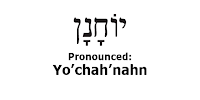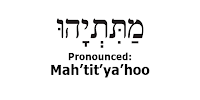Blessing The Bread
Two complete loaves of bread, called challah, are used for Ha’motzee, the blessing over the bread. The challah should be covered from before Kiddush until everyone is ready for the blessing over the challah after the ritual hand washing. One reason that the challah is covered is because one would normally recite the blessing over bread before any other blessing, but on Shabbat, the blessing on wine is recited first. The bread is covered so that it should not “feel shamed” at having lost its natural place of honor. The purpose, of course, is not to protect the “feelings” of an inanimate object--since it would not have feelings--but to teach us a lesson about respecting our fellow human beings and going out of our way not to shame them.
The person making the blessing over the challah gently marks the challah to be cut with a knife and then raises the challahs and recites the blessing.
Blessed are You, Lord our God, King of the universe, who brings forth bread from the earth.

Ba’ruch Ah’tah Ah’doh’nai Eh’lo’hay’nu Melech ha’o’lam ha’mo’tzee lechem min ha’aretz.
The challah is then cut and each piece is dipped in salt (just a pinch). The person who made the blessing should take a piece, eat and then distribute the cut challah out to everyone at the table.
Twebrew School: Shabbat is brought to you on behalf of Shabbat Across America and Shabbat Across Canada, the only cross-continental celebration of Shabbat. The fourteenth annual SAA/C will take place on March 5, 2010. To learn more, click here.
Copyright © 2010 National Jewish Outreach Program. All rights reserved.
The person making the blessing over the challah gently marks the challah to be cut with a knife and then raises the challahs and recites the blessing.
Blessed are You, Lord our God, King of the universe, who brings forth bread from the earth.

Ba’ruch Ah’tah Ah’doh’nai Eh’lo’hay’nu Melech ha’o’lam ha’mo’tzee lechem min ha’aretz.
The challah is then cut and each piece is dipped in salt (just a pinch). The person who made the blessing should take a piece, eat and then distribute the cut challah out to everyone at the table.
Twebrew School: Shabbat is brought to you on behalf of Shabbat Across America and Shabbat Across Canada, the only cross-
Copyright © 2010 National Jewish Outreach Program. All rights reserved.


Comments
Post a Comment